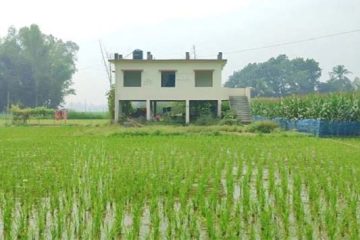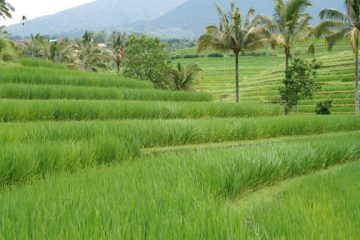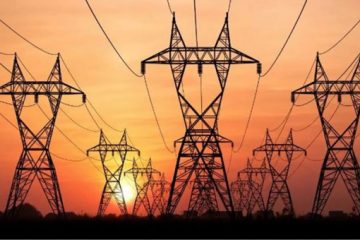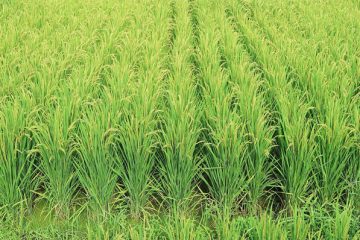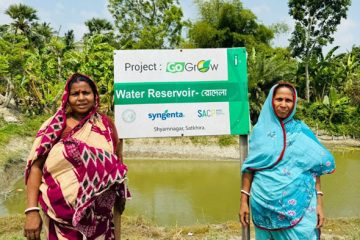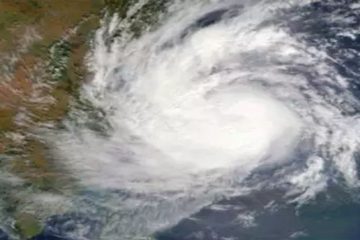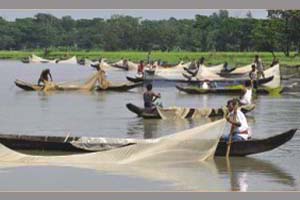 The river Halda, the only natural carp breeding ground in the world and major source of major carps like Rui, Katla and Mrigel, is facing a threat to its existence.
The river Halda, the only natural carp breeding ground in the world and major source of major carps like Rui, Katla and Mrigel, is facing a threat to its existence.
Man-made problems and natural disasters brought the spawning ground to this position of decline.
Interference from man include cutting bends in the river to slow down its current, massive sand lifting, dumping of industrial waste, unplanned construction, rampant construction of sluice gates and indiscriminate catching and killing of mother fishes.
Natural disasters like climate change and rising salinity of the river water are also responsible for this situation.
Due to such interventions, mother fishes, which normally chose the Halda to release their eggs, are now coming here in very lower numbers for breeding.
Md Manzurul Kibria of zoology department of Chittagong University said the last ten years has seen a decline in the number of mother fishes arriving at the Halda to spawn.
During the 80s and 90s, over 1,000 kilogrammes (kg) of eggs were collected from the Halda river every year. But now this has come down to 20 to 30kg every year, Kibria said.
“If we want to get back the Halda to its earlier state, it is urgent to formulate a long-term plan for it,” he said.
The government took a lot of projects in this regard on various occasions but those failed for lack of proper guidance and planning, he added.
He criticised a project titled “Restoration of the natural fish breeding habitats of the river Halda”, whose main objective was to restore the river, for progressing in a slow pace.
He said though the river determines socio-economic fate of the people living in the adjoining areas, the authorities could not involve the local people with this project.
District Assistant Fishery Officer Mizanur Rahman said progress of the project was slow due to some official bottlenecks but now is back on track.
He said they united 43 local organisations of Hathazari and Raozan, compromised of local people and fishermen, under the banner of “Beneficiary of Halda” to accelerate the project.
The government gave around Tk 1.5 crore as soft loan to 1,050 members of these organisations, he added.
He said in the past the fishermen used “kua” to cultivate eggs but under this project, the government made hatcheries in the river for better production.
Mohammad Imam Hossain, chief executive of Nowzwuan, an organisation working on the river Halda under this project, said they are creating awareness among the local people and farmers.
They informed the local people about the benefits of not fishing in the Halda during the “off-season” and got a good response from them, he added.
But there have been recent incidents of mother fishes releasing eggs in the Halda at unusual times. Mother fishes usually depend on water temperature, water current, rain and thunder to lay eggs during the full moon and basically release eggs in May and June. But this year they released eggs without any such knowledgeable signs which experts termed an alarming incident.
Kibria said there were three reasons behind the increasing salinity of water in the river. Local people cut a lot of bends in the river, reducing length of the river by 25 kilometres, the level of water was lower than sea level due to sluice gates and shortage of water supply from the connected canals.
Nurul Hudda, a local egg collector, said the fish released eggs at 4:00am on April 19, which was not usual. By the time they went to collect the eggs around 2:00pm, they found most of them damaged, he added.
Courtesy of The Daily Star

